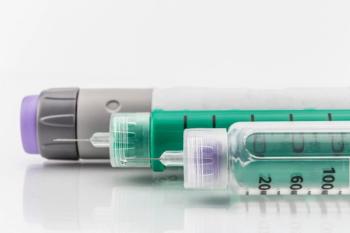
Pharmacists can improve insulin safety and adherence by combining in-person counseling with practical tools, regular check-ins, and proactive education.

Pharmacists can improve insulin safety and adherence by combining in-person counseling with practical tools, regular check-ins, and proactive education.

Pharmacists play a key role in monitoring insulin use by addressing dosing, storage, and symptom management through regular, supportive patient check-ins.

Community pharmacists play a crucial role in helping patients start insulin with confidence through education, emotional support, and hands-on guidance.

Susan Cornell, PharmD, CDCES, FAPhA, FADCES, discusses how pharmacists can explain insulin timing and mealtime coordination effectively to patients.

Pharmacists play a key role in ensuring safe and effective insulin use by identifying common challenges, providing ongoing education, and supporting patient confidence through regular engagement.

Susan Cornell, PharmD, CDCES, FAPhA, FADCES, discusses how pharmacists can help patients who express fear when starting insulin therapy.

Experts discuss the evolving landscape of pharmacy through technological advancements, professional development, and advocacy.

Susan Cornell, PharmD, CDCES, FAPhA, FADCES, associate director of experiential education at the College of Pharmacy at Midwestern University, also addresses personalized care and the expanding responsibilities of pharmacists.

Susan Cornell, PharmD, CDCES, FAPhA, FADCES, associate director of experiential education at the College of Pharmacy at Midwestern University, discusses recent advancements in diabetes care.

Published: July 16th 2025 | Updated: